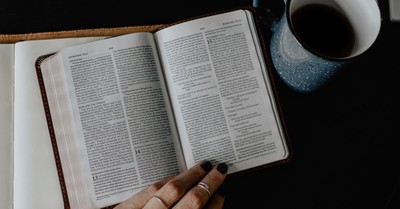5 Ways to Join God in Redeeming Disaster
Dawn broke yesterday over the Hurricane Katrina memorial on the Louisiana Gulf Coast. The granite cross was erected in 2006 beside a plaque engraved with the names of 163 people who lost their lives to the storm in this area. Each year on August 29, a remembrance ceremony is held here.
I wonder if those who built the memorial and those who made a pilgrimage to it every year thereafter imagined that another monster storm would come ashore in the same place on the same day.
Hurricane Ida swept ashore near Port Fourchon, Louisiana, yesterday afternoon as a devastating Category 4 hurricane. With winds of 150 mph, it tied as the state’s most powerful storm with Laura from last year and the Last Island Hurricane of 1856.
All of New Orleans is without power this morning as the storm continues marching northward through Louisiana. It has weakened to a tropical storm, but life-threatening flash flooding is continuing.
This devastation feels personal to me. I was honored earlier this year to deliver the keynote address for the second time at the Louisiana Governor’s Prayer Breakfast. I have been privileged to pray personally with Gov. John Bel Edwards and know the governor and his wife to be people of deep personal faith. Many of the religious leaders in the state have become personal friends.
Undoubtedly you know the frustrating impotence of wanting to help friends and loved ones face suffering beyond our capacity to remedy. The loss of a spouse, parent, or child; a diagnosis of terminal disease; the collapse of a marriage—there are storms we cannot calm and broken hearts we cannot mend.
When the two collide, what are we to do? What are some biblical ways we can help friends in a hurricane?
One: Be prepared.
Because of the Fall, “the whole creation has been groaning in the pains of childbirth until now” (Romans 8:22). You and I inhabit broken bodies on a broken planet.
As a result, the first step to helping people in storms is to expect and prepare for storms.
My wife’s parents retired from Houston, Texas, to a farm they built in northern Arkansas. When they built their house, they also built a tornado shelter. When they stocked their kitchen, they stocked their shelter. They knew that the only time to prepare for a storm is before it arrives.
If you doubt the urgency of preparing for disaster, just read today’s news.
For example, the remains of thirteen fallen American heroes were brought home from Afghanistan yesterday. Marine Corp Sgt. Nicole L. Gee was one of them. The bombing killed her six days after the Pentagon tweeted a picture of her cradling an Afghan infant in her arms in Kabul. Gee reposted that photo on Instagram with the caption, “I love my job.”
President Biden and Dr. Jill Biden met with a number of family members present at Dover Air Force Base for the transfer. If you were the president, what would you say to them?
The US is projected to see nearly one hundred thousand more COVID-19 deaths between now and December 1. Seventeen-year-old Jo’Keria Graham was one victim, dying of COVID-19 just a few days before she was to start her senior year of high school. Louisiana hospitals anticipating victims of Hurricane Ida are already packed with patients from the latest coronavirus surge.
Physician Mona Amin told a reporter, “Children are getting hospitalized at higher rates than we’ve ever seen.” She added: “As this Delta variant surges, we are also seeing children of vaccinated parents get admitted for hospitalization for COVID.”
What would you say to their parents?
Two: Be empowered.
Christ the Redeemer will soon have a rival: Christ the Protector. The former is an iconic 125-foot statue of Jesus overlooking Rio de Janeiro; the latter is a 140-foot statue under construction seven hundred miles to the south.
The Wall Street Journal describes Christ the Protector as “one of about three dozen giant statues of Jesus that have been constructed around the world during the twentieth and twenty-first centuries.” The tallest is a 253-foot statue of Jesus planned in Tamaulipas, Mexico, though so far the project has stalled.
The article explains their popularity: “Even the nonreligious can find solace in a benevolent figure who expresses protection and welcoming.”
Here’s the good news: you can experience such “protection and welcoming” from the real Jesus right now. And you can pray for his compassion for hurting souls to empower your own.
Unlike other religious figures venerated through statues and idols around the world, our Savior has experienced the pain he now redeems. He walked through the same terrifying storm from which he spared Peter (Matthew 14:22-31). He suffered the same hunger, thirst, weariness, and pain he now helps us endure. He faced the temptations he empowers us to defeat (Hebrews 4:15-16).
In God Will Help You, Max Lucado writes: “When we feel lonely, knowing someone understands can make all the difference. You can be surrounded by people but still feel lonely if you don’t feel known. And you can be alone but not lonely if you are known. God became flesh so we would always feel known by him” (his emphasis).
Now we can seek his heart for the hurting people we know.
Our Savior is praying right now for the victims of Hurricane Ida, the crisis in Afghanistan, the coronavirus pandemic, and untold other calamities (Romans 8:34). Join your Savior by asking him for his heart for hurting hearts today.
Three: Be present.
My father suffered a near-fatal heart attack when I was two years old. He was then a heart patient for all the years I knew him before dying ten days before Christmas during my senior year of college.
The events surrounding his death were and are a blur to me. I remember virtually nothing about Dad’s memorial service, burial, and the days before and after.
But I will always remember a friend from college who drove across Houston the day after Dad’s death to spend the day with me. He did not speak a word that I recall. But his unconditional presence felt to me like the presence of Jesus.
That’s because it was. It’s nearly unbelievable but steadfastly true: Christians are the body of Christ (1 Corinthians 12:27). We are the visible manifestation of Jesus’ continuing ministry in our world. When we are present with people in their suffering, Jesus is present with them in their suffering.
After we pray in the spirit of Christ, we can answer our prayers by being the presence of Christ.
If you’re in crisis, my first inclination as a trained theologian is to theologize with you. If you’ll sit quietly for a while, I’ll explain to you how the Augustinian free-will theodicy relates to the fall of creation and the hurricanes and other disasters that result. I’ll tell you how Irenaeus’ soul-building model is relevant to your pain, then I’ll outline the eschatological and existential approaches favored by some scholars.
My college friend would sit at your side. When you’re in the storm, which approach would you prefer?
Some doctors treat diseases; other doctors treat patients. When your friend is in the storm, be the latter.
Four: Be prayerful.
What about those with whom you cannot be present?
Though I have been to Louisiana many times over the years, I cannot safely go to its devastated cities and towns this morning. But my prayers can.
I have never been to Afghanistan. I am not invited to the military funerals of our heroes killed there last week. I cannot stand alongside those who are risking their lives for us and those who are grieving for the fallen. But my prayers can.
I cannot be with the family and friends of veteran actor Ed Asner after his death yesterday at the age of ninety-one. I cannot safely visit a COVID-19 ward or fight wildfires in the West.
But my prayers can.
What about those whose suffering is largely their fault? Oswald Chambers was right: “Discernment is God’s call to intercession, never to fault finding.”
God’s word counsels us: “Do not be anxious about anything, but in everything by prayer and supplication with thanksgiving let your requests be made known to God” (Philippians 4:6, my emphases). As you read the news, pray the news. And pray for the mind and heart of Christ in the power of the Spirit to guide you as you pray.
Five: Be practical.
Texas Baptist Men are the third largest voluntary disaster relief organization in the US, after the American Red Cross and the Salvation Army. Their courageous initiative models the best of Christian benevolence.
When others run from disaster, they run to it.
Today is an example. Volunteers are headed to Louisiana this morning in multiple teams, bringing a large kitchen team and a chainsaw team as part of their relief efforts. My wife and I have already donated to their efforts; you can join us here. You can also support the Salvation Army, the Red Cross, and other organizations as they mobilize to help.
God’s word is clear: “As each has received a gift, use it to serve one another, as good stewards of God’s varied grace” (1 Peter 4:10, my emphasis).
What “gift” have you received?
Whom will you serve with it today?
“Sore must be the storm”
Are you prepared for the storms you will face today? Empowered by Jesus’ compassion? Present? Prayerful? Practical?
Emily Dickinson wrote:
“Hope” is the thing with feathers—
That perches in the soul—
And sings the tune without the words—
And never stops—at all—
And sweetest—in the Gale—is heard—
And sore must be the storm—
That could abash the little Bird
That kept so many warm—
I’ve heard it in the chilliest land—
And on the strangest Sea—
Yet—never—in Extremity,
It asked a crumb—of me.
But it does. Hope asks more than a “crumb” of us—it asks us to give it to everyone in “the Gale” today.
Will someone be glad tomorrow that you read this article today?
Publication date: August 30, 2021
Photo courtesy: ©Getty Images/Scott Olson/Staff
Jim Denison, PhD, is a cultural theologian and the founder and CEO of Denison Ministries. Denison Ministries includes DenisonForum.org, First15.org, ChristianParenting.org, and FoundationsWithJanet.org. Jim speaks biblically into significant cultural issues at Denison Forum. He is the chief author of The Daily Article and has written more than 30 books, including The Coming Tsunami, the Biblical Insight to Tough Questions series, and The Fifth Great Awakening.
The views expressed in this commentary do not necessarily reflect those of CrosswalkHeadlines.
For more from the Denison Forum, please visit www.denisonforum.org.
The Daily Article Podcast is Here!




















